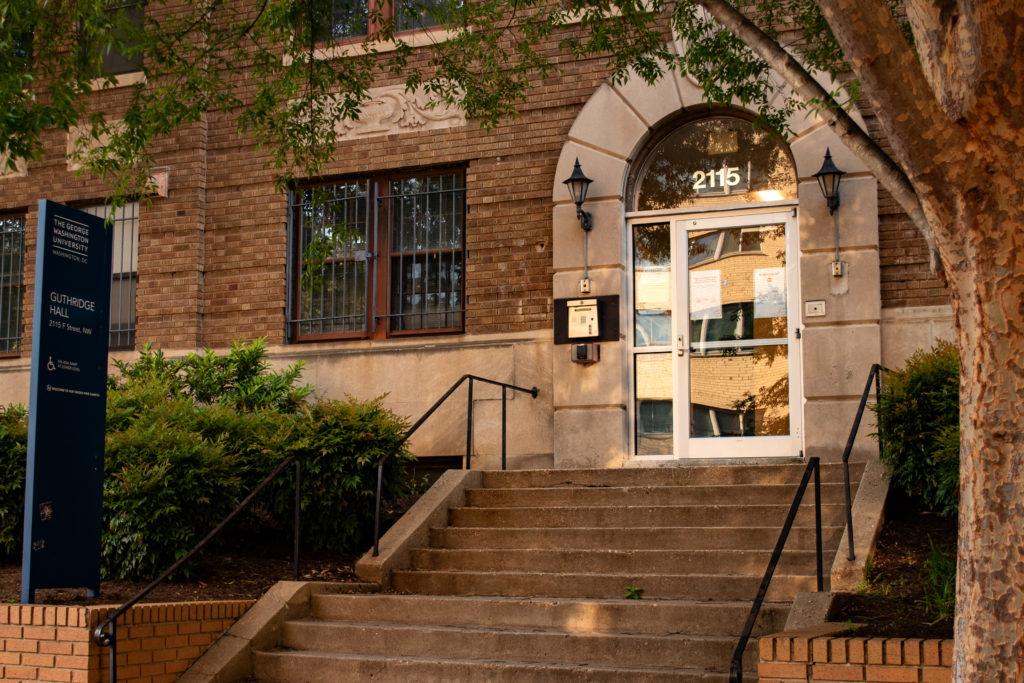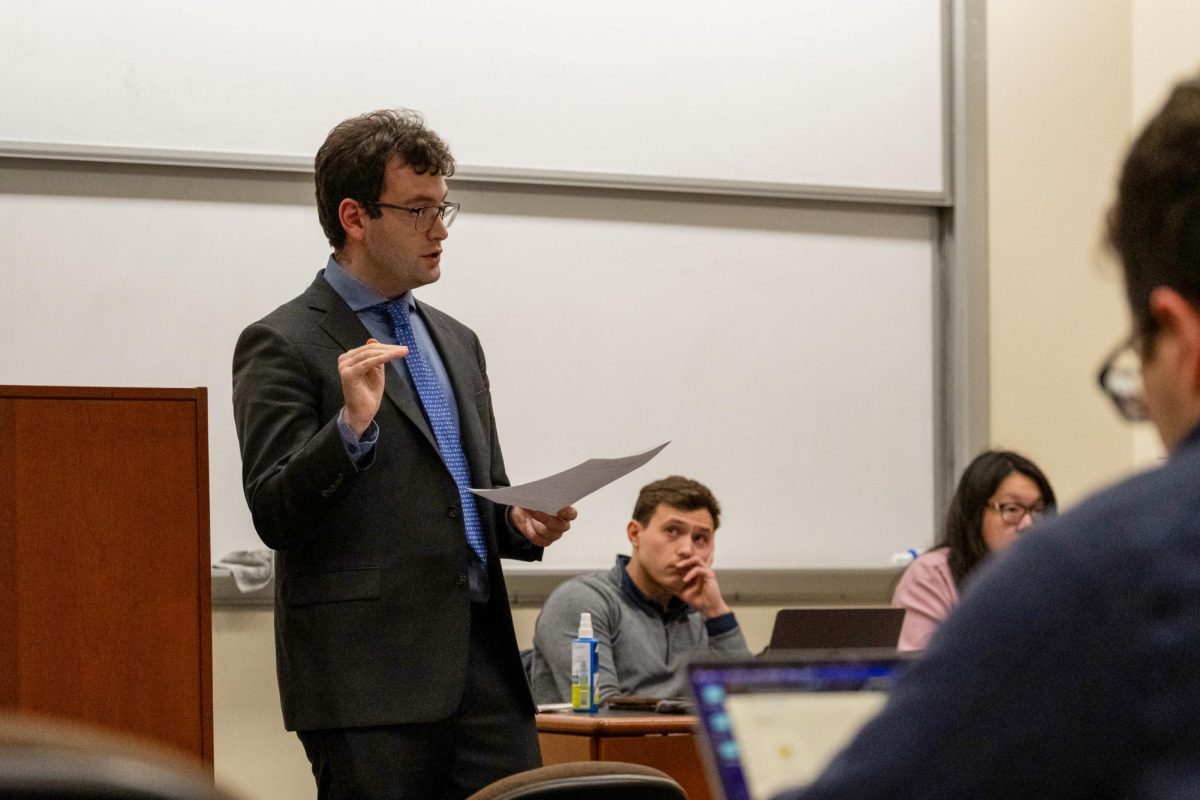With her entire freshman year completed, Lucia Shen has still never slept a night on campus.
Shen spent her freshman year living in an apartment 15 minutes off campus and said losing her freshman residence hall experience left her without a sense of community. Shen is one of more than half a dozen students who said they struggled to find community in an entirely virtual environment this academic year, turning to student organizations and social media to form relationships instead.
“It’s hard to meet other college students,” she said. “Whereas, if we were living in the dorms, I feel like we could just pop on next door and have someone to hang out with or talk about or do work with or anything.”
Officials responded to burn out and mental fatigue from a year of virtual classes and socializing online with well-being initiatives and virtual forums to address students’ questions and concerns about the virtual learning environment. Officials said they will implement more programs next fall to foster community among students after completing a year of schooling entirely online.
Colette Coleman, the senior associate dean of students, said the mental fatigue spurred on by the pandemic and experienced by the Class of 2024 will resemble the experiences of other classes next year. She said the University is working to plan in-person events to try to rebuild human connection and a sense of community that was lost among students in the virtual environment.
“What we were hearing from students was that we’re really tired of being in that space, and so that reflected and stood in the attendance of those events,” she said. “And what we were hearing from the students was, again, that fatigue, that mental fatigue, the fatigue of being on the camera in the boxes and the lack of human connection.”
Coleman said administrators are planning a New Student Orientation for both the classes of 2024 and 2025 next fall in the hopes of allowing for a smooth transition to campus. She said orientation will include programming on the National Mall, so students will have a “bookend moment” to reflect upon when they graduate in the same place at the end of their undergraduate years.
“There’s been a lot that’s been lost throughout the course of the year, and I don’t know that we’re going to be able to gain all of that back,” she said. “But what we can do is have intentionality and care at the entry point to their physical experience to campus.”
Stewart Robinette, the assistant dean of students for campus living and residential education, said officials will implement a new “neighborhood model” in residence halls next fall, which will support and foster community among students within their room, floor, residence hall and outside to the general D.C. neighborhood.
Robinette said professional staff members called community coordinators will answer students’ questions and share bulletins and emails about events to help them stay engaged in their campus community as part of the neighborhood model.
The neighborhood model will replace the previous Resident Adviser program with the implementation of professional staff members with similar responsibilities. After officials canceled the RA program earlier this semester, more than half a dozen students said the decision could run the risk of damaging the residential community.
“They’re really going to focus on creating authentic relationships with the students,” he said. “In the first place, they go through the idea of community with the students to provide support that way.”
Robinette said community coordinators will also act as an extension of the orientation team and will help students transition into college and residence hall life. He said they will help students with aspects of the learning and living experience, like creating a college schedule and cooking with their kitchen gas stove, to create a more enjoyable campus life.
“There’s other life skills about ‘Okay when you’re transitioning to doing your own schedule or having structure, what are some key offices to know about that can really help you be successful while you’re at college?’” he said. “The other big thing that that group really focuses on is helping with communication. So we’ve got bulletin boards, we’ve got digital displays, we’ve got email communications that go out.”
Luca Greenspun, a freshman majoring in public health, said he’s spent the past school year completing virtual classes from his home in Bethesda, Maryland, which is 20 minutes from campus. He said he has been able to build community within his major and meet other students through Zoom, but he still feels socially disconnected.
“I felt pretty connected with the faculty and I feel pretty connected as a public health major,” he said. “But I guess socially, maybe a bit disconnected.”
Greenspun said he tried to visit campus and meet with other students outside to build a sense of community. He said he found friends as part of the Naval Reserve Officers Training Corps and through group work during classes.
He said next year he hopes administrators will understand that members of the Class of 2024 will be entering with the academic experiences of sophomores but with the social experiences of freshmen.
“I think some empathy and understanding that yes, we are sophomores in college, so theoretically, we have gotten one year learning how to study, learning how to be college students,” he said. “But I hope they have some empathy, knowing that we’re also all seeing each other for the first time and for a lot of people learning where to go in D.C. So we still need to be treated as freshmen even though we’re taking sophomore classes.”
Maria Fugel, a freshman majoring in nutrition science, said living in an apartment five minutes off campus left her feeling like she missed out on the community building experiences that come with living in a residence hall.
“I definitely do think it was difficult for me to meet people and build the community,” she said. “And I think living in a dorm, you’re kind of in pretty close quarters with a lot of other people, and I think naturally, you’re able to make a lot more friends, just passing the same people every day and living around them.”
Fugel said she completed virtual classes from her home in New York in the fall and moved to an apartment off campus in the spring because she was unsure if officials would bring more students back to residence halls for the semester. She said moving to D.C. allowed her to meet more students than when she was living at home, but it was still difficult to meet new people in a virtual environment.
“I still think I feel somewhat disconnected, although now I have met more people than I had first semester,” she said. “But I think it’s still really hard when all of your classes are on Zoom, and just interactions are kind of awkward with other students, not being able to have that face to face experience.”








